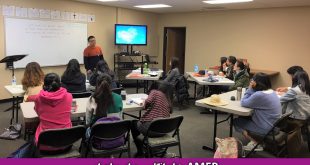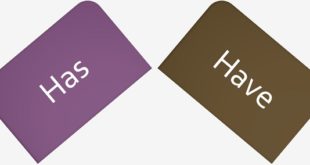What’s The 80/20 Rule?
So, what is The 80/20 Rule?
The 80/20 Rule is The Pareto Principle, which is that:
“20% of actions produce 80% of the results.”
So, 80% of the effects in life, in many different realms of life, come from 20% of the causes.
Who was Pareto?
So, who was Pareto?
Pareto was Victor Pareto and he was an Italian economist from the 20th century, and he first noticed when he was in his garden that 20% of the peapods in his garden contained 80% of the peas.
So, 20% of the peapods had 80% of the peas that he could then obviously eat from his garden. So, 20% were doing 80% of the work.
And he also further noticed that when he went out into the street 20% of the streets in the town that he lived in had 80% of the traffic.
And he also took this another step further and noticed that in Italy 20% of people owned 80% of the land.
So, it really comes back to that idea of the 20/80 split or the 80/20 rule where 20% of actions lead to 80% of the results, or 80% of the effects come from 20% of the causes.
Other examples
So, what are some other examples of The 80/20 Rule in modern day life?
- In economics, 80% of the wealth is owned by 20% of the population
- In business, 80% of a business’s profits tend to come from 20% of that businesses customers, and
- In sports 20% of sportsmen participate in 80% of big competitions, and of those sportsmen 20% of them tend to win 80% of the awards, of the medals.
What else can this apply to?
So, you can apply this to literally anything in life, guys.
- 20% of your friends probably give 80% of your happiness
- 20% of the clothes that you own is (are*) probably what you wear 80% of the time
- and, 20% of the time spent at the gym is probably 80% of what gets you your results, your gains at the gym
- in school, for example, you could say 80% of your grade, of the marks that you get in school, probably come from 20% of the assignments or 20% of the tests
- and on YouTube, as another example, 20% of the videos get most channels 80% of their views.
Let’s Recap Quickly
So, clearly in terms of productivity, guys, it makes sense to focus on the 20% of your actions that get you 80% of your results, that gain you that 80%. It’s much better to be spending most of your time on the really efficient stuff that gets you the majority of your results than (on) the inefficient stuff that gets you barely any results.
So, take that 80% of your time, that 80% of your action, that 80% of your efforts and focus it back in on the 20% that is most effective for you.
How Does This Apply To Learning English?
So, how can you apply The 80/20 Rule to learning English?
1. Examine Past Experiences
Examine your past experiences. Think back to when you were learning at school or when you were learning in a different country. When you first started learning English which tasks did you like the most? Which tasks were the ones that you got the most out of, and can you replicate that today? Can you do those today and get more out of your English learning?
2. Study Habits
Study habits. Examine your study habits, guys. What balance of time do you spend speaking, listening, reading and writing? And are any of those tasks worse than any of the others? Would you gain a lot more from spending the majority of your time focusing on say your speaking to meet all of the other tasks that you’re already good at, for example?
3. What’re You Afraid Of?
Is there anything you’re afraid of? Is there anything that you really don’t like? So, what aspects of learning English are you currently finding the scariest or the least interesting, but from which you would really benefit if you put a bit of time into? So, for instance, maybe speaking with strangers, public speaking, writing well, understanding different accents like the Australian accent, and how can you spend time efficiently to overcome these fears and improve on these skills if it is something that is important to you, that you could tomorrow, today, yesterday, spend time on improving?
Some Actionable Tasks
So, now I want to give you some actionable tasks that you guys could do to improve your English learning, and to apply The 80/20 Rule directly to learning English.
1. Not All Words Are Equal
Not all words are created equal.
So, obviously we all sort of learn when we first start learning a language that words occur at different frequencies, and we often use frequency dictionaries to learn which words are most commonly used and thus the most important to learn.
So, the 2000 most common words tend to make up 80% of the written and spoken language whether it’s English, whether it’s Russian, whether it’s Portuguese.
And so, I really recommend that you guys get a word frequency list and go through that list and look for the words that you don’t know.
And again, allocate them different importance based on where they are in that list.
Obviously, if they’re in the top 100 words it’s incredibly important that you learn those words that you don’t know or can’t use confidently that are higher up on that list.
So, work down that list. That’s one thing that you could do today to fill in the blanks, to fill in the holes.
Go through a word frequency list and actively look for the words that you don’t know or that you can’t use confidently and spend the majority of your time learning those words.
2. Learning Vocab
Learning vocab.
Again, sort of like the word frequency list, not all vocab is created equal. What 20% of English vocab can you focus on today that you’re going to be using 80% of the time?
This is going to be different for everyone and you kind of have to analyse this yourself.
For instance, if you’re an engineer you’re going to need to learn words like “fulcrum”, “pressure”, “density”, those kinds of words that are related to engineering because you’re going to be using those at a higher frequency in your spoken English, if it’s your job that you’re doing in English, than for instance myself who is not an engineer.
If you’re a doctor, obviously you need to know all of the vocab related to body parts and disease.
If you’re a pilot, obviously you need to know the vocab related to flying, related to planes and helicopters.
So, focus in on the 20% of vocab that you could be learning that you’re going to be using 80% of the time, and just keep doing that.
Keep recycling that process. Keep doing that. Focus in on the vocab you’ll use the most and you’ll get the most out of it that way.
Obviously, it’s still important to learn other words, but just put it in context. Am I going to be using words that are very rare and not common like rare nouns for, you know, parts of the human body if I’m not a doctor, very often?
You know, it’s the kind of thing where you might want to recognise it, you might want to learn it once or twice, but don’t focus a disproportionate amount of time on learning that kind of vocab.
Always keep going back to the most common vocab and get comfortable with it.
A Key Point
A key point here, guys.
You don’t need to know every single word in English.
One thing that you can really do well with is learning how to say,
- “Sorry, I don’t understand you?”
- “Could you please repeat that again slowly.” and
- “What does this word mean?”
And then you can learn all the other stuff as you’re speaking. You don’t have to remember every single word.
3. Learning Grammar
Learning grammar.
Again, like the English vocab, what 20% of English grammar can you focus on today that you’re going to be using 80% of the time?
It may be that you want to learn incredibly abstract parts of English grammar, but if you’re not going to be using those, whether writing or speaking, I wouldn’t be spending a lot of time learning those.
Maybe go over it every now and then. Think about it. Have it rolling around in your head.
But I would be spending 80% of my time, if not 100% of my time, on the 20% of English grammar that I’m going to be using 80% of the time, the majority of the time.
So, things like:
- The Present Tense,
- The Future Tense,
- (The) Past Tense,
- Continuous (Tense) stuff,
- All of the different adjectives that I use and adjective order.
Again, I would just focus on what I’m going to use the majority of the time.
A Key Point
So, the key point here too to take away, guys, you don’t need to know every single grammatical part of English.
You don’t need to get every single sentence you say or write 100% grammatically correct to be understood.
You can improve your mistakes as you learn.
You can aim to one day in the future not make any grammatical errors, but even I as a native speaker make them.
Ultimately, your goal should be to be understood, to be understood, and you don’t need to be grammatically correct all the time, 100% of the time, to be understood.
4. Use An SRS Program
Use an SRS program like Anki, Memrise or Quizlet.
So, an SRS program is a Spatial Repetition System, and these are programs that effectively create flashcards for vocabulary. And, you can use ones that are already made or you can make them yourself.
I really recommend making them yourself. And, these really really help you learn vocabulary quick. They help you memorise words quick. Very very quickly.
The best part about these is that they make you focus on the 20% or the small percent of words that you find the hardest you have to see most often until you remember them.
All the easy words, which often tends to end up the bulk, ends up at the back of the deck and you don’t see them as often. So, it kind of does The 80/20 Rule job for you.
Let’s Summarise
So, in summary, guys, that’s really it.
The 80/20 Rule:
“20% of the actions produce 80% of the results.”
“80% of the effects come from 20% of the causes.”
This can apply to so many different things in life:
- Whether it’s your friends with 20% of your friends lead(ing) to 80% of your happiness,
- Whether it’s work where 20% of the time at work gets 80% of your tasks done for the day,
- Whether it’s business with 20% of your customers accounting for 80% of your income as a business,
- Or whether it’s your health where 20% of the time spent at the gym is going to get you 80% of the gains.
So, yeah, go over this episode a few times, guys. Think about it.
How does it apply to English?
How could you use The 80/20 Rule to improve your English learning?
To improve your life in general, whether it’s relationships, work, business, or language learning, or health? And see how you go.
Let me know in a comment below guys what you think. I’d love to know. And I’ll chat to you soon.
Peace out!
 ایرانیان استرالیا Australia Iran بزرگترین جامعه ایرانیان ساکن استرالیا Australia Iran
ایرانیان استرالیا Australia Iran بزرگترین جامعه ایرانیان ساکن استرالیا Australia Iran











